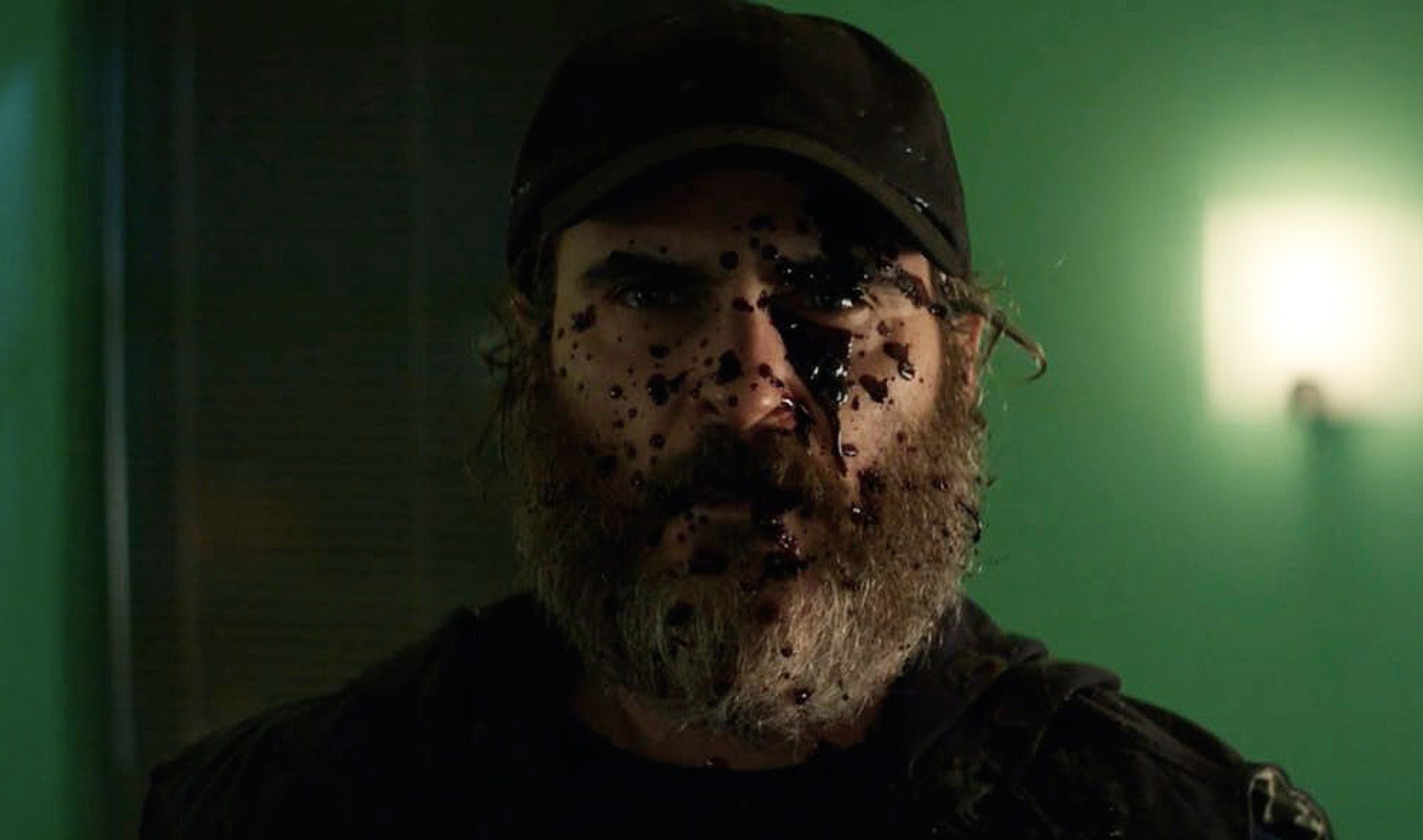Film Review: You Were Never Really Here
“A brutal, unforgiving 21st century Taxi Driver.”
You Were Never Really Here has been often compared to Taxi Driver, and quotes like the above made it into the trailer for the film, so I suppose it’s fair to judge it on that basis, at least to start with. Based on Jonathan Ames’ 2013 novella, it deviates from the source material as much as it needs to in order to translate the tone and character(s) from the page to the screen. Directed by Lynne Ramsay, director of We Need to Talk about Kevin and the brilliant Morvern Callar, the cinematic language of the film takes over the plot and you slowly realise that you’re not watching Taken, but an intense exploration of the psyche that takes its time to get where it needs to.
Joaquin Phoenix plays Joe, a hired gun (or rather, hammer) who specialises in retrieving missing teens. He had previously worked in the FBI, dealing with similar cases of human trafficking, and the film, like the book, focuses intermittently on his past; he is tormented by visions from his time as a marine, his time in the FBI, his abusive father. These experiences though come only as brief flashes on the screen, and take a back seat to the effects they have on Joe. The way this is explored is indeed reminiscent of Taxi Driver, despite the characters not being very similar (if you discount the fact that they’re both loners, ex-marines, and bent on saving a teenage girl from prostitution). Where Travis Bickle is an angry young man with a lot of energy but no purpose, Joe is older and tired of the world. Joe wants to retreat from the world, while Travis is an observer of the world, his inner tension rising from his inability to penetrate the membrane between himself and the people around him. The similarity is in how they are explored, on a psychological level. You can see some of Scorsese's influence in the shots of Joe in front of the mirror (no one is talking to him), and generally some of the long shots where he is not doing anything in particular, where we are slowly synchronised to his wavelength.
What is added to these Taxi Driver layers is Ramsay’s portrayal of violence, which is a far cry from the by-now clichéd action/revenge flick’s bullet-driven chaos. An excellent example of this is the scene where he enters the brothel to go save the girl, shown entirely through the security cameras’ POV. Diegetic sound is completely removed, and the shots are set to Rosie and the Originals’ “Angel Baby”, creating a signature dissonance between what you see and what you hear that has a stronger effect than any conventional Hollywood technique. The violence feels different in this film – the external violence seems like an extension of the psychological violence Joe exerts on himself. Finding a visual way of portraying and exploring this violence is far more important than following the plot threads, and Ramsay does this with stunning boldness.
The essence of Joe transitions perfectly from book to film. However there is an important difference that will be immediately obvious to readers of the book: he is not the perfectly-operating machine that leaves no trace of his existence. In the novella, Joe is always wearing latex gloves and is very particular about his every move, every fingerprint or trace of DNA he might leave at any point in his journey. Phoenix’s Joe wields the same power and with the same ease, but his moves are not as calculated and precise. Book Joe has attempted suicide once, and after not going through with it has decided he will do it after his mother dies first; in the film, he is often pulling a plastic bag over his head and playing with a dagger, to the point where it seems to be a fun pastime for him. This adds more to the character, and his lack of resolution; he seems to be making a point of there being no difference between the before and after – he was never really there anyway.
Go watch You Were Never Really Here for a cinematic experience that moves far beyond the banalities of a revenge action flick, into the realm of intense neo-noir imagery, deep character exploration, and flashes of brutal cathartic violence that set the internal tempo of the film. For hardcore film buffs: watch it back to back with Taxi Driver and Drive if you have the time – it will make your day and have you thinking about it long after it’s over.


